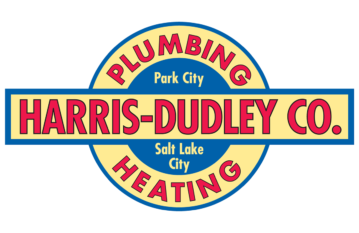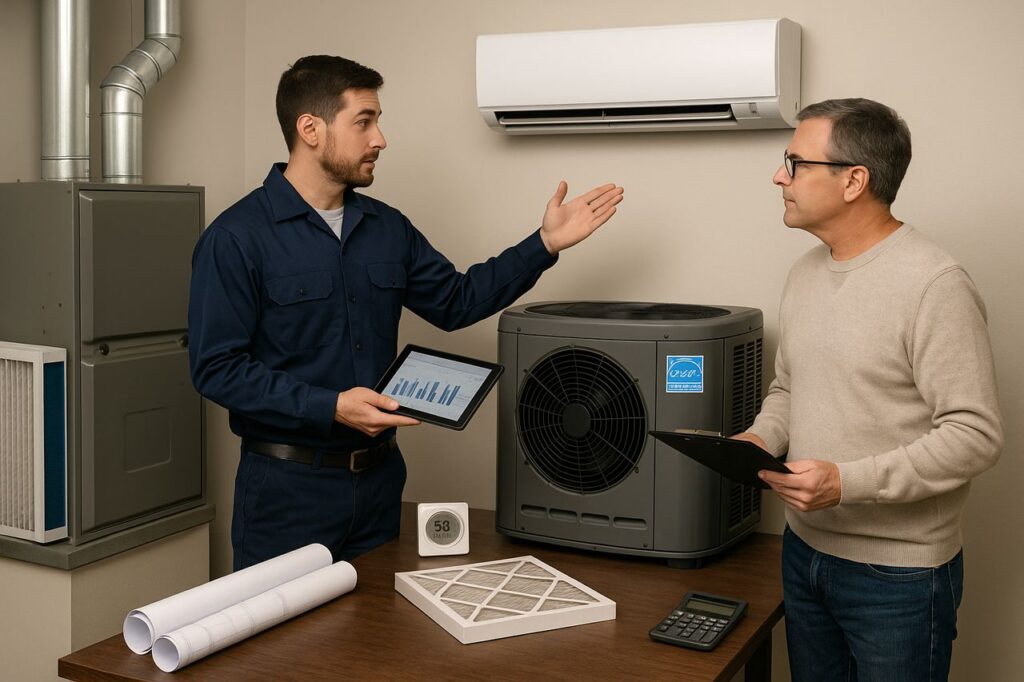Choosing a new HVAC system is a significant decision for any homeowner or business operator. A well-chosen system can deliver comfort, improve indoor air quality, and reduce energy bills for years to come. Harris-Dudley Co. understands that selecting the right heating, ventilation, and air conditioning system is not as simple as picking the most powerful unit available. It requires careful consideration of multiple factors that affect performance, efficiency, and long-term reliability.
Here are the six most important things to evaluate when investing in a new HVAC system.
1. Energy Efficiency Ratings
One of the primary considerations in modern HVAC systems is energy efficiency. Higher efficiency systems help lower utility bills and reduce environmental impact. Look for units with a high Seasonal Energy Efficiency Ratio (SEER) rating. The minimum SEER rating for new systems is typically around 13, but models with ratings of 16 or higher offer significant energy savings.
Energy Star-certified HVAC systems are often a good choice because they meet strict government standards for energy efficiency. An efficient system not only saves money but also contributes to a smaller carbon footprint. When evaluating HVAC services, professionals should guide you toward systems that offer optimal efficiency based on your local climate and building size.
2. Proper System Sizing
A common mistake many make is selecting an HVAC system based solely on the square footage of the building. However, correct sizing depends on multiple variables, including insulation levels, window quality, occupancy, and the region’s climate.
An oversized system will cycle on and off too frequently, wasting energy and wearing out components prematurely. Conversely, an undersized system will struggle to maintain a comfortable indoor temperature, particularly during extreme weather. HVAC service providers perform a load calculation, often referred to as a Manual J calculation, to determine the precise system size needed for your property.
3. Type of HVAC System
There are several types of HVAC systems available, and the right one depends on your specific needs.
- Split Systems: These are common in residential homes, consisting of an outdoor condenser and an indoor air handler.
- Ductless Mini-Split Systems: Ideal for homes without existing ductwork or for room additions, offering flexibility and energy savings.
- Packaged Systems: These combine heating and cooling components in a single unit, often used in commercial buildings.
- Heat Pumps: These systems provide both heating and cooling by transferring heat between indoor and outdoor environments and are especially efficient in moderate climates.
Understanding the pros and cons of each system type helps make an informed decision. Harris-Dudley Co. offers comprehensive HVAC services, assisting customers in selecting the system best suited to their specific needs and budget.
4. Air Quality Features
Today’s HVAC systems do much more than regulate temperature. Indoor air quality is a critical consideration, especially for those with allergies, respiratory conditions, or young children.
Look for systems that incorporate advanced air filtration options, such as HEPA filters or UV light systems, which help reduce airborne pollutants, mold spores, and bacteria. Some high-end models also include humidity control features that prevent excess moisture buildup, contributing to a healthier indoor environment.
An HVAC system that improves air quality can significantly enhance comfort and wellbeing in both residential and commercial settings. Trusted HVAC service providers can help recommend models that integrate these features effectively.
5. Reliability and Warranty
An HVAC system is a significant investment that should last for many years. Reliability depends on the brand, build quality, and proper installation. Well-established brands often offer a good track record of performance and customer support.
Check the warranty terms carefully. A comprehensive warranty covering parts and labor provides peace of mind in case of system failure. Reputable HVAC services like Harris-Dudley Co. provide guidance on trusted brands and ensure professional installation, which is critical to system longevity.
Regular maintenance plans are also worth considering. They help prevent issues from arising and extend the life of your system by ensuring components operate efficiently and are kept clean.
6. Cost of Operation and Maintenance
Initial price is only part of the equation when selecting a new HVAC system. Ongoing costs for energy, repairs, and regular maintenance must also be considered.
A higher-efficiency system may have a higher upfront cost but can save thousands of dollars in energy bills over its lifespan. Similarly, some systems require less frequent or simpler maintenance, which reduces long-term costs.
HVAC service providers can perform a detailed cost analysis, factoring in installation fees, expected energy use, local climate conditions, and potential rebates or tax incentives. Harris-Dudley Co. helps customers weigh these factors carefully to achieve an optimal balance of price, performance, and efficiency.
Conclusion
Selecting a new HVAC system is more than just picking a popular model off the shelf. It requires careful analysis of efficiency ratings, proper system sizing, system type, air quality features, reliability, and total cost of ownership.
For those seeking trustworthy and professional HVAC services, Harris-Dudley Co. offers expert guidance from start to finish. Our commitment is to help you choose a system that provides comfort, efficiency, and long-term reliability while fitting your unique needs.Contact Harris-Dudley Co. today to schedule a consultation and ensure your next HVAC system provides the performance you expect.

